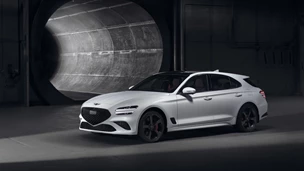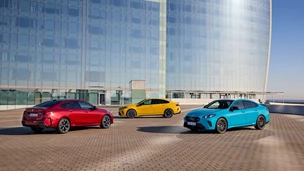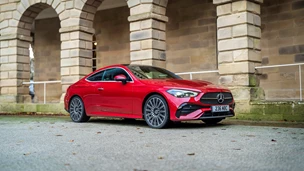The city car rivalry continues to hot up, with Peugeot becoming the latest carmaker to refresh its runabout offering with the 108, a far more stylish and premium-looking car to its 107 predecessor. It’ll need to be good though, with the VW up! and its siblings, the SEAT Mii and Skoda Citigo, leading the field these days, alongside the also very good Hyundai i10.
And then there’s the Citroen C1 and Toyota Aygo, which are essentially the same car as the 108 – the result of a joint venture between the brands, with many similar elements inside and out.
Available in three- and five-door iterations, and with the option of a retractable fabric roof, the Peugeot 108 is a model that is all about personalisation. It’s great for younger drivers looking for a quirky and stylish car to drive around the city.
Performance
The car is offered with a 1.0-litre VTi 68bhp unit or a new 1.2 PureTech 82bhp engine, which in the standard offering (no stop/start or dodgy semi-auto gearboxes) hit 62mph in 14.3 and 11.0 seconds respectively.
Peugeot’s lesser-powered 108 will be the most popular, as it replaces the 1.0-litre in the outgoing 107, and provides enough grunt for around town.
The new three-cylinder PureTech, though, has its place, especially on motorways, where it has some extra power higher up the gears to hold its own amid the executive saloons and SUVs on the lovely M1.
Both engines come mated to a five-speed manual gearbox, while the 1.0 VTi is also available with a semi-auto ETG transmission. We recommend avoiding the ETG gearbox if possible and going for the manual versions.
As both of the units emit less than 100g/km of CO2, your choice of model would depend on whether you want a little more bang for your buck. If you want that extra power, go for the 1.2 PureTech version.
Ride and Handling
The light steering is well-judged for city driving and parking, and there’s a small turning circle.
A city car will never be at the fore of driving dynamics, and the 108 is no different, with a fair amount of body roll and some ride comfort issues. It doesn't exactly thump into bumps, but poor surfaces can be unsettling for passengers and the driver. There’s also the issue of refinement, with plenty of engine, wind and road noise. The 1.2 PureTech is particularly abrasive and far rougher than its 1.0-litre counterpart, with some vibrations felt in the cabin. The light steering is well-judged for city driving and parking, though, and there’s a suitably small turning circle. Rivals such as the Skoda Citigo and Hyundai i10 easily win on this front, with a more composed ride, more accurate steering and better refinement. The 108 is still an improvement on its predecessor though, and will be perfectly sufficient for many driving around town.
Interior and Equipment
The Peugeot 108 shares the same chassis as fellow city cars, the Citroen C1 and Toyota Aygo.
The cabin is noticeably more comfortable and luxurious than the 107, although the plastics remain scratchy in places and some materials are flimsy. Four adults will be relatively comfortable inside, though the five-door is recommended for people regularly using the back seats. There's less rear head room in the fabric roof version, so take this into account. Four trims - Access, Active, Allure and Feline – are available, with Peugeot expecting Active to be the most popular. This specification includes a seven-inch touch-screen, DAB radio, Bluetooth, height-adjustable driver’s seat, and manual air conditioning. Boot space offered is 196 litres, while the boot lip has been lowered by 20mm for easier access. All but the Access models have 50:50 split folding rear seats, expanding the boot space to 780 litres. Rivals like the Citigo offer more boot space, but the 108 has most beaten with more kit offered in lower trim levels.
Cost
We expect the 108’s residual values to be stronger than its sister models, especially when specified with the touch-screen.
Prices for the 108 are relatively low. Starting from £8,425, the 108 is priced between the C1 (£8,245) and Aygo (£8,595). TOP! versions, with the semi-convertible roof, add £850 to the cost. Best running costs fall on the 1.0 68 Stop & Start, which emits just 88g/km CO2, with official fuel consumption of 74.3mpg – besting the Citigo’s offering of 95g/km and 68.9mpg, respectively. The 1.2 PureTech VTi 82 has CO2 emissions of 99g/km and will return up to 65.7mpg – meaning it’s still exempt from road tax and the London Congestion Charge. Leasing costs are attractive, with the 108 available from Peugeot on a Passport Personal Lease from just £99 per month – great for private customers. Low CO2 emissions mean that the city car is also an attractive proposition for business leasers. We expect the 108’s residual values to be stronger than its sister models, especially when specified with the touch-screen.
Our Verdict
The Peugeot 108 is a better car than its predecessor, with smart looks, good running costs and an improved interior, but it still isn’t a patch on some of its rival city cars, which usurp it in almost every area. Styling will draw some buyers, and it’s good enough to be a respectable alternative to the obvious choices, but remains far from being a class leader. If you’re looking for a model full of style while still being economical, the 108 is a great choice when compared to its rivals. However, if you want more practicality, then the likes of the Citigo have it easily beaten. Wind-in-your-hair driving can be achieved with the 108 TOP! Versions, but long motorway journeys would be uncomfortable for rear passengers.




